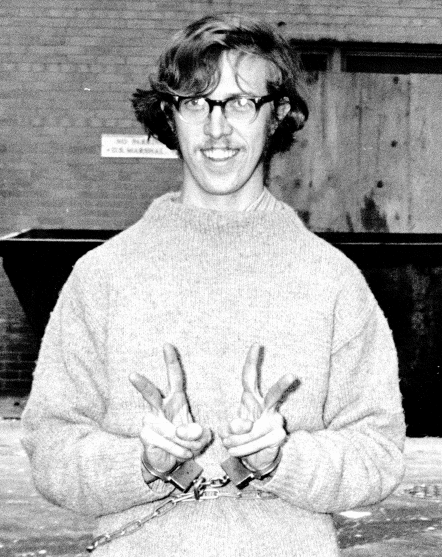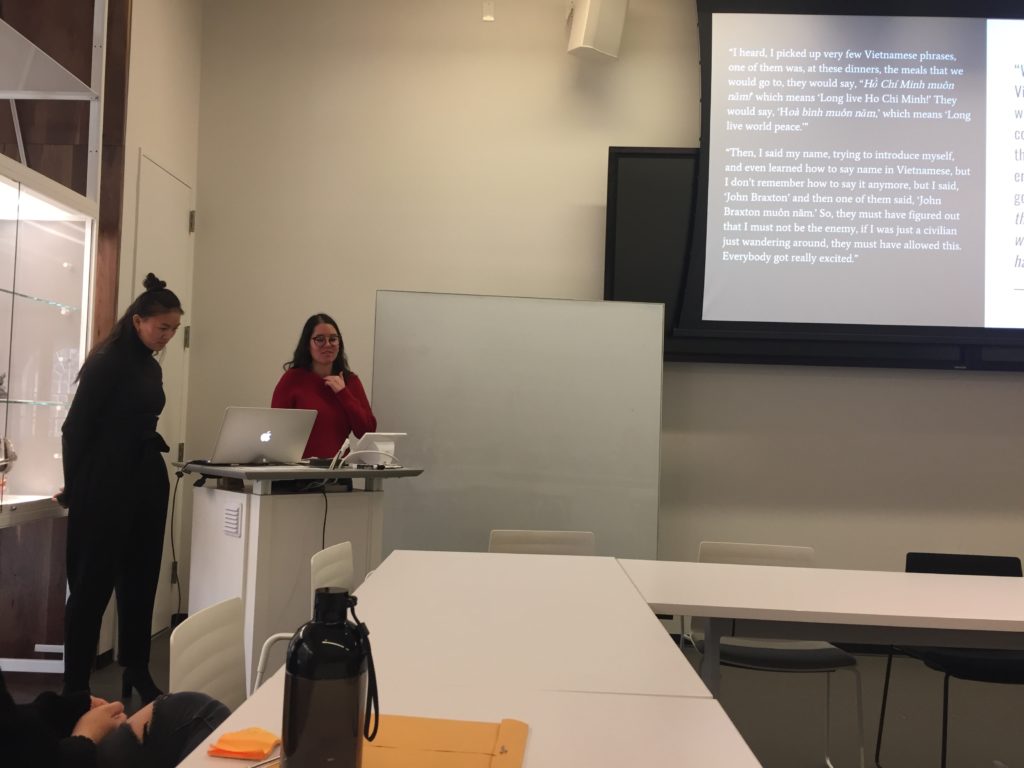Interviewed by Creighton Ward and Xenia Kibbelaar
Visited North and South Vietnam as a peace activist in Summer 1967

John Braxton is a civilian from the Philadelphia area. Born to Quaker parents, he was brought up attending Friends meetings and raised in a culture of pacifism. The social justice slant of his Quaker upbringing would lead him to join A Quaker Action Group, which organized a trip to sail to both North and South Vietnam to deliver medical supplies in a humanitarian gesture that also aimed to make a statement in opposition to the war. John sailed to Vietnam the summer after his freshman year at Swarthmore, and ended up missing the first semester of sophomore year because of it. His absence from Swarthmore made him eligible for the draft, so he applied for conscientious objector (CO) status, but when he was granted CO status, he decided that he would refuse to comply with any part of the draft, given the injustice of the system and his firm anti-war beliefs. He was incarcerated for his noncompliance with the draft. After the war, John continued to pursue justice in the Philadelphia area and became a labor reformer in the Teamsters union. He is currently a professor of Biology at the Community College of Philadelphia.
Articles about John Braxton:

Reflections on the interview from Xenia Kibbelaar:
With his interview, I have learned more about the peace movement and some of the real- life consequences of avoiding the draft that I would have not gotten in a history textbook. Furthermore, I was surprised by the warm welcome that the Phoenix crew had gotten when they were in North Vietnam. I had assumed that since North Vietnam was fighting against the American military, they would not be welcoming to Americans. However, with the interview, I had realized that I was wrong. In addition, there were things that I did not know much about before, which included Quakerism and conscientious objectors. In addition, the two major themes that came up in the interview was Quakerism and the peace movement, so I ended up writing my paper on that. it was great to interview somebody that had personal account and opinion on the Vietnam War. The interview went really well, and Braxton had a great story to tell. Before this project, I did not know that there were Americans that went to Vietnam on their own accord.
Reflections on the interview from Creighton Ward:
As someone who has been increasingly drawn to anti-imperialist politics and Asian studies during my undergraduate career, Mr. Braxton’s experiences and interests dovetailed nicely with my own, and I was able to relate to his intellectual and political journey that he recounted in our time with him. We have in common an undergraduate experience that politicized us and drew us towards theories and practices of social justice that we apply to the pressing issues of our time. I really loved hearing from John about his life, and I thought he was extremely friendly, intelligent, and easy to talk to. This made me much more comfortable in the interview.
The most useful thing I got out of the experience was the historical context that Mr. Braxton provided me with, which helped me locate the anti-war movement in a greater awareness-raising around U.S. interventions around the world. As Mr. Braxton said, Vietnam was not so much an aberration in U.S. foreign policy, but consistent with a pattern of imperial intervention and disrespect for sovereignty.
Full research and reflection papers:
